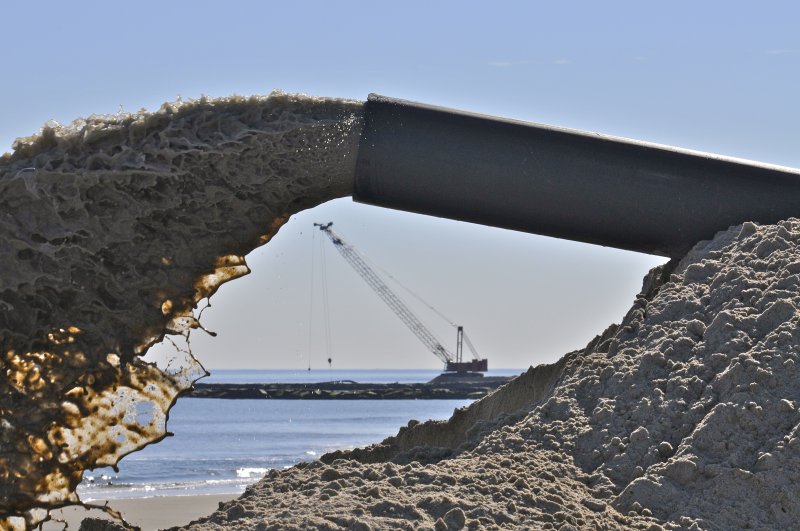The Delaware Department of Natural Resources and Environmental Control began testing July 14 for the new engines of the sand bypass system at the Indian River Inlet.
The bypass system will run daily from 7 a.m. to 2 p.m. and operate through Thursday, July 17. Testing will resume according to the following schedule: Monday, July 21 to Thursday, July 24; Monday, July 28 to Thursday, July 31; and Monday, Aug. 4 to Wednesday, Aug. 6.
Most of Delaware Seashore State Park and its beaches will remain open. However, temporary closed areas remain off-limits even when testing is not actively taking place.
During bypass system testing, DNREC will be moving large volumes of sand through high-pressure pipes from the south side of the inlet to the north side. This process creates unstable conditions both in the water and on the beach within the restricted areas. Pumped sand becomes saturated and poses a serious risk of entrapment. Also, water conditions near the pumping zone may include dangerous rip currents. Entering these active work zones during pumping operations is dangerous and strictly prohibited.
Barriers and signage clearly mark restricted areas at the Indian River Inlet. DNREC staff will be present at the park’s public access points on both sides of the inlet to guide visitors and help enforce safety measures. White buoys with orange horizontal bands will mark the hazardous areas in the water.
Violations of park regulations can result in fines ranging from $50 to $250 for a first offense.
The bypass system is a mechanical operation that mimics the natural movement of sand along the Atlantic Coast, pumping sand from the inlet’s south side, where it accumulates, to the north side, where erosion is a persistent issue. Operating the bypass system helps maintain beach width, protect nearby infrastructure and improve coastal resilience. The system was offline for several years and has recently been upgraded with new pumps and a new electric motor. This summer’s testing will ensure the upgraded system is fully operational before it can be placed into regular service.





















































